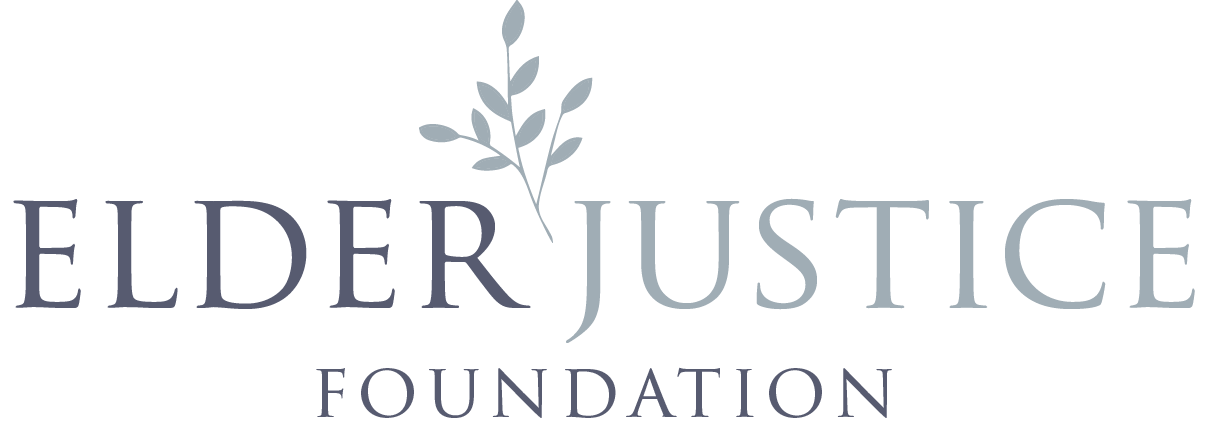Grants
The Elder Justice Foundation funds projects that support the eradication of elder abuse and ageism through research, training and advocacy efforts that create, share and apply knowledge about this esteemed population.
CREATING KNOWLEDGE
All new ways of solving societal problems stem from basic research into the causes and consequences of human behavior. We must understand factors influencing elder abuse before we can effectively address the problem.
BRAIN CHANGES AND FINANCIAL EXPLOITATION RISK IN OLDER ADULTS – CORNELL UNIVERSITY, R. NATHAN SPRENG
Among older adults, sudden and unexpected financial losses as a result of financial exploitation can have devastating consequences, as relatives may be forced to take on additional financial burdens or exploited older adults may be forced onto public entitlement systems.
Current demographic trends suggest that financial exploitation of older adults is an emerging public health concern that requires surveillance, education and intervention.
The goal of this research project is to identify how age-related changes in the brain, and related changes in cognitive functioning, predict financial exploitation in older adulthood.
This research will lay the foundation for early detection of vulnerable individuals at risk for financial exploitation.
Finance, Cognition, and Health in Elders Study (FINCHES) USC Keck School of Medicine, S. Duke Han, PhD
This grant is funded to study the health impact of financial fraud among older adults. The primary aim of the Finance, Cognition, and Health in Elders Study (FINCHES) is to investigate the association between financial fraud and health outcomes. The secondary aim of FINCHES will be to determine the mediating or moderating factors that mitigate or exacerbate the association between financial fraud and negative health outcomes. A third aim of FINCHES will be to better characterize financial fraud among older adults and explore the precipitating factors, contextual correlates, and consequences of fraud using qualitative methodology.
SHARING KNOWLEDGE
We seek to increase the capacity of organizations and professionals working in elder abuse and elder justice by providing effective ways to share current information via publications, forums, conferences and web-based communications.
THE JUDITH D. TAMKIN INTERNATIONAL SYMPOSIUM ON ELDER ABUSE: CLOSING THE RESEARCH GAPS - MOVING THE FIELD FORWARD - SEPTEMBER, 2016
This mission of this symposium was to create safe and healthy environments for all elders, here and across the world, by bringing thought leaders, activists, caregivers, researchers, lawmakers and other stakeholders together to share findings, strategize solutions, and help shape and propel the field of elder abuse.
Its objectives included:
- Identify new approaches to methods in elder abuse research
- Integrate the concept of community-based participatory research
- Identify funding priorities and opportunities in elder abuse research
The Elder Justice Foundation funded the development of a white paper to summarize the symposium, inform readers about the issue of elder abuse and present the symposium’s philosophy concerning barriers to effective elder abuse research.
BOOK
Funding has been provided for work on a major book by Marie Therese Connolly that will address the subject of elder abuse in depth and from a variety of perspectives. It will support continued work on the manuscript, which was originally funded through a grant from the MacArthur Foundation.
APPLYING KNOWLEDGE
The Elder Justice Foundation funds prevention and intervention programs, protocols and trainings that create safe communities for elders to live, learn, work and recreate.
THE WISCONSIN LONG-TERM CARE OMBUDSMAN PROGRAM AND THE CHANGING LONG-TERM CARE LANDSCAPE
NORC at the University of Chicago and the National Consumer Voice for Quality Long-Term Care received a one-year grant to study how the Long-Term Care Ombudsman Program in the state of Wisconsin advocates on behalf of residents whose long-term services and support are arranged by managed care organizations (MCOs).
Wisconsin was not only among the first to introduce programs that expanded home- and community-based options, but was also an early adopter of fundamental changes in the delivery and payment of Medicaid programs through contracts with MCOs. As interest among states in capital-managed long-term services and support delivery systems continue to grow, the Wisconsin ombudsman program’s service delivery model will serve as an important guide to other ombudsman programs, as they seek to meet the complex demands associated with the expansion of home and community-based services.
The project team will develop a best practices toolkit for providing advocacy on behalf of managed care beneficiaries.
GOAL ATTAINMENT SCALING
UNIVERSITY OF TORONTO/DAVID BURNS
Elder abuse intervention research and community programs have routinely faced great challenges in developing ways to measure outcomes of success. How do we measure intervention effectiveness or success when the salient issues underlying cases vary widely, and older adult victims have different perceptions of what constitutes an appropriate solution?
Standard scales that apply a fixed set of items to every case often fall short because they lack sensitivity in detecting uniquely relevant case factors and/or contain a host of irrelevant items that dilute responsiveness.
The current study seeks to adapt and implement goal attainment scaling (GAS) into the elder abuse intervention context.






